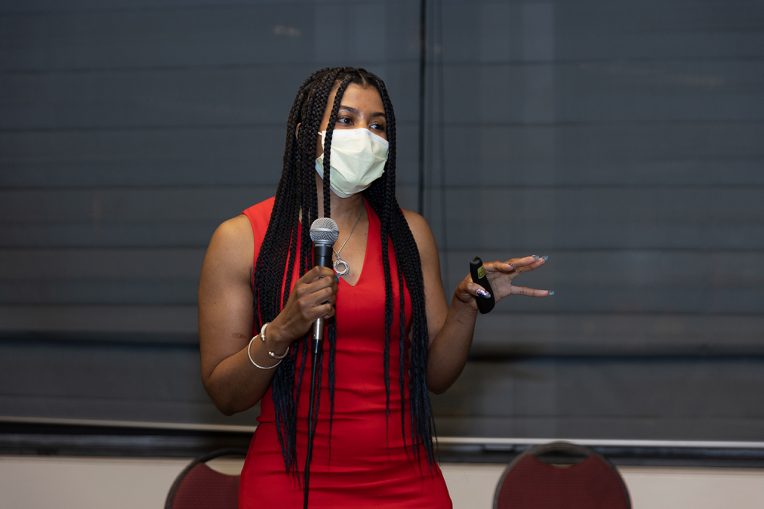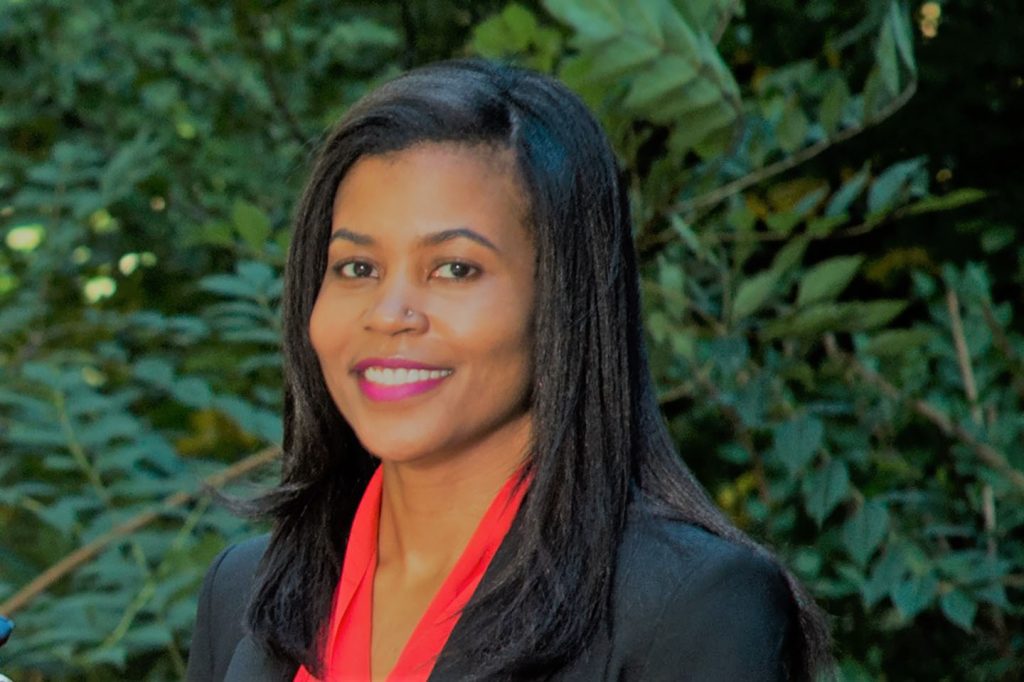Dr. Jennifer J. Parker ’04 has a message for Redbirds: It’s OK to take a nontraditional path to success.
“It took a while for me, mentally, to get over that it’s not a straight path and that it works out,” she said.
Parker spread that message November 10 when she returned to Illinois State’s campus to give the keynote address at the annual Charles Morris STEM Social for Underrepresented Students. She is now a dermatology resident physician at Temple University, but when the Chicago native originally came to Illinois State, her goal was to become a neurosurgeon. She was drawn to neuroscience because of the many opportunities for both clinical practice and research.
Illinois State had a profound impact on her journey and she stays connected with her mentors, including Dr. Craig Gatto, interim chair of chemistry, and Dr. Tak Cheung, professor emeritus in biology.
“ISU is a really strong place to allow you to pursue what you want to do,” she said. “It was a really welcoming place, and people were willing to invest in you and whatever vision you had for yourself.”
After graduation, she went to Stanford University to pursue medical school. She knew she still wanted to be a physician but wasn’t yet sold on neuroscience. It wasn’t until she started her Ph.D. program that she found a field that fit what she was looking for.
“I ended up in the lab of a radiation oncologist. Before then I didn’t really know what radiation oncology was,” she said. “I thought the science she was doing was cool and I had an interest in cancer biology, immunology, pharmacology, things like that. Because of her, I started to look into the clinical aspects of what she did.”
After completing medical school in 2012, she would go to Northwestern University to start her radiation oncology residency. At Northwestern, Parker conducted research to help detect cancer earlier and support individual cancer patients as a physician. One of the patients she treated was her own grandmother.
“I was grateful for the opportunity to help her during her own cancer journey,” Parker said.
Parker recently felt the pull to go in a different direction. Working with cancer patients was fulfilling, but also emotionally taxing. She is also passionate about working to improve and reform health care for minority patients, exemplified during her time at Harvard University where she completed the Commonwealth Fund Fellow in Minority Health Policy and Leadership. It was at Harvard where she reflected on how she wanted the rest of her career to look.
“I ended up shifting again,” she said. “My friends were like, ‘Oh my God, you were done training, you are working, you are doing all these things. Why would you ever send yourself back to training?’”
Parker was able to take her experiences into the field of dermatology, which she had enjoyed working in as a student at Stanford. She is especially drawn to the wide variety of medical research she can conduct and having the ability to improve the lives of those with chronic skin conditions.
“So here I am, back in training, but I am so happy about my decision, I absolutely love it,” she said. “Even though the number of patients we see is absolutely exhausting, I am excited to do it every day.”
Parker’s research and clinical work at Temple revolves around improving dermatological clinical outcomes in skin of color. She explains that darker skin tones often react differently to certain medicines or procedures than lighter skin tones. These differences are often not found in the clinical phase of new treatments as people of color are less likely to participate in clinical trials.
“Getting more people to participate in trials can be hard, especially considering the history of how certain drugs and things were tested. A really good example is the Tuskegee Experiment, where people were intentionally exposed to syphilis and not treated,” she said. “How do you build that trust to get people into the trial to see if the treatments you are working on will work for everyone and not just a certain population?”
Returning to campus to speak about her career and motivate students is in line with her goal to solve those issues. Parker’s experiences have shown that having a more diverse workforce in any field uncovers problems underrepresented people face and towards a solution to those problems.
“Having people there who can speak to some of the concerns of populations they are from can spark better ideas that lead to better overall outcomes,” she said.


